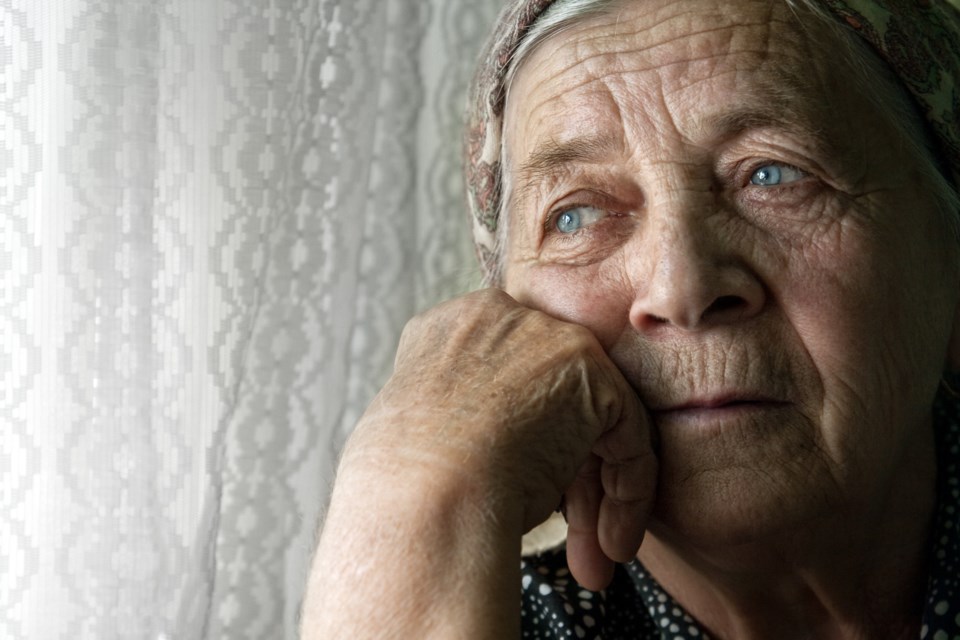This article, written by Victoria Atabakhsh, University of Waterloo, originally appeared on The Conversation and has been republished here with permission:
In the midst of the ongoing COVID-19 pandemic, we’re all attempting to adapt to new routines and schedules as we adjust to our new social-distancing lifestyle.
Although we’re all vulnerable to the coronavirus, we must not forget the population that’s most at risk — older adults, 65 and up.
Although almost all long-term and retirement facilities have been closed for visitation to non-health-care workers, there are still many older adults living in our communities — alone or with family members. Already a group vulnerable to both COVID-19 and social isolation, social distancing can therefore be challenging for older adults because they have fewer chances to interact with other people, leave their homes and go to public places.
Some older adults are resisting changes to their routines and adapting to the new COVID-19 lifestyle, leaving their adult children frustrated and fearful.
With the heightened stress of being asked to stay home and refrain from seeing others, older adults may defy the advice and prefer to stick to what they know (going to the gym, seeing their friends, for example), in order cope with changes that may feel overwhelming to them.
This spurs strong emotions, fear, anxiety and potential conflicts with the younger population.
Easing social distancing
Having worked in various long-term care units and currently a doctorate student in aging, health and well-being, my attention is always drawn to the needs of older adults, especially amid this global pandemic.
Here are a few things you can do to make this transition of social distancing easier for yourself and the older adults in your life:
Limit the non-essentials: Encourage the older adults in your life to cancel any appointments and outings that aren’t essential. If it is essential, contact a health-care provider and ask for the best course of action for the older adult to stay as safe as possible.
Intergenerational cohabitation: If you’re engaged in an informal care partnership (meaning you are an informal caregiver to an older adult) and are living in an intergenerational household (multiple generations under the same roof), you as a family can implement minor yet effective changes during this time.
Refrain from sharing utensils, food and drinks. Stay at home as much as you can and if you do have to leave, stay in a separate room in your home away from the older adults and keep a separate bathroom.
It’s critical to recognize every generation’s needs in the house so now is the time to exercise empathy, patience and unity.
Communicate: It’s best to distance yourself from older adults at this stage in the pandemic; however, you can still keep them in the loop. Let them know what is going on by keeping them up to date with daily news.
Since it’s best to keep a physical distance, now is the greatest time to have conversations via phone calls, video chats and e-mail. Talk about the small stuff — from how good your coffee was this morning, what book you are reading and how cute the dog looks when he sleeps. Every little bit is worth the conversation.
Offer help: If you live with any older adults or know any in your life, from a family member to a neighbour, ask how you can help them. Ask if they need a medication refill, see how they are doing with toilet paper, if they have enough food, and let them know that you are in their corner and they are not alone. Remember to respect older adults’ autonomy and self-rule, so always ask before you assume.
Well-being: Remind older adults to constantly wash their hands. If you can, encourage the older adults in your life to engage in at-home stretches, open the blinds to let natural sunlight in, watch funny movies, read books and to do things that are fun for them in the comfort of their own home.
Talk about the future: When the world is in a state of panic, we need to remember that remaining hopeful helps ease new transitions. In your phone calls or video chats, talk about plans for the future with any older adult in your life. Talk to your grandmother about how much you love her chicken pot pie and how excited you’ll be to have it again. Talk to your older neighbour about your excitement for the warmer weather, and how these video calls make it easier to avoid the chilly weather!
We all need hope in times like these, so remember to pass it on to the older adults in your life.
Don’t be too negative
Although a vulnerable population, it is important to remember that older adults still have autonomy and it is essential to respect that.
As much as it is critical for older adults to practise social-distancing, try not to scare older adults into staying home by emphasizing how dangerous COVID-19 is.
Simply communicate effectively and calmly. This is a stressful time, so more than ever, we must practise peaceful unity.![]()
Victoria Atabakhsh, Doctorate student in Aging, Health and Well-Being/RLS, University of Waterloo
This article is republished from The Conversation under a Creative Commons license. Read the original article.
